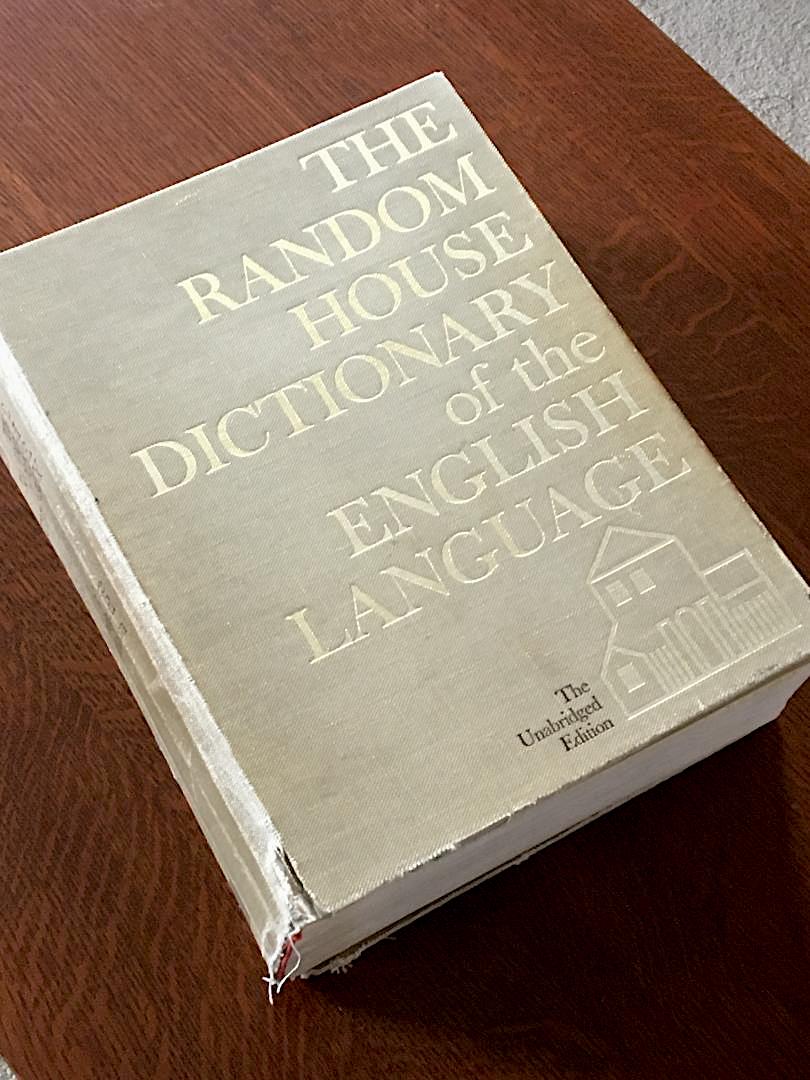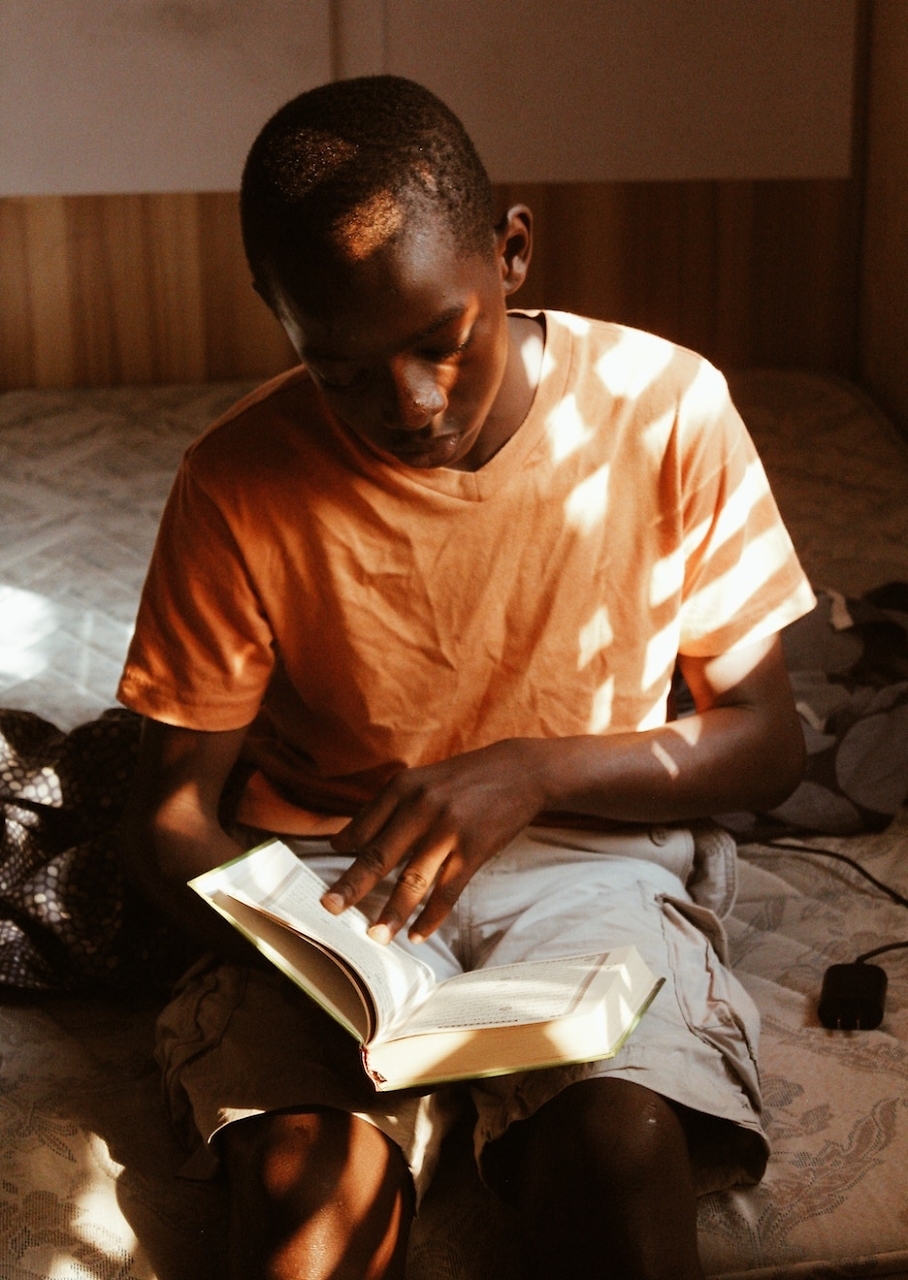My Favorite Chapter
A writer reflects on her long relationship with Chapter 16
As a lifelong and enthusiastic reader, I believe passionately in the power of the written word — its ability to educate, challenge, inspire, and delight. But I never seriously thought of becoming a writer. From time to time throughout my life, people who read a letter of mine or a school assignment told me that I should “be a writer” or “write a book,” but I never could figure out what I might have to say that wasn’t already being said much more eloquently by others.

Then, on a snowy day in early January 2011, I followed a link on the Chapter 16 Facebook page and read an essay called “The Home That Lies Always in Memory” by Richard Marius. (The East Tennessee novelist and historian had died in 1999 but still managed to do me a good turn 12 years later.) Prompted by his recollections of home and family, I immediately sat down and wrote a short reminiscence of my Southern upbringing and the writers of the region who had influenced me, both personally as a reader and professionally during my employment at a regional publishing company.
I sent it off to my friend and Chapter 16 founding editor Margaret Renkl the same day. Chapter 16 was not even 2 years old, and I thought Margaret would like to know how much I had enjoyed and been inspired by one of its pieces. When she and I were undergrads together in the English department at Auburn University in the early 80s, I thought Margaret was the most talented person I’d ever met. I wasn’t right about much at the age of 21, but I was right about that. Now an award-winning weekly columnist for The New York Times with two published books of her own, she is also one of the kindest people I know and (as you’ll see) the most persuasive.
Imagine my surprise when she answered my email with an offer of publication. She had some ideas about how I could lengthen what I had written and turn it into an honest-to-goodness essay. She also offered me actual money in return for publishing it. “This is embarrassing to admit,” she began, “but keep in mind that we’re a tiny nonprofit with an even tinier budget.” And then she told me how much she could afford to pay me. To which I responded, “Heck, I’d do your laundry for less than that.” And so it began. After some rewriting, my first piece for Chapter 16, “Peachtree Memories,” was published on February 1, 2011.
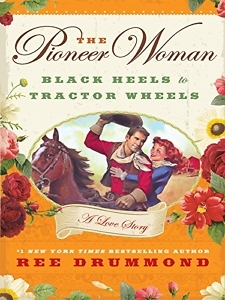 Before that essay even appeared, Margaret recruited me to interview Ree Drummond, the online personality known as “The Pioneer Woman.” It did not seem to matter to her that I had no idea how to do such a thing: “Don’t fret,” she declared. “You can do this in your sleep … and I’ll hold your hand the whole way.” So even though fretting is my life, Margaret remained unperturbed. She has a special way of challenging you to do things you are pretty sure you’re not capable of. Basically, it goes something like, “That’s ridiculous. Of course, you can.” And so I did. And I have continued to do.
Before that essay even appeared, Margaret recruited me to interview Ree Drummond, the online personality known as “The Pioneer Woman.” It did not seem to matter to her that I had no idea how to do such a thing: “Don’t fret,” she declared. “You can do this in your sleep … and I’ll hold your hand the whole way.” So even though fretting is my life, Margaret remained unperturbed. She has a special way of challenging you to do things you are pretty sure you’re not capable of. Basically, it goes something like, “That’s ridiculous. Of course, you can.” And so I did. And I have continued to do.
It’s been more than 10 years now since I took those tentative and unwitting steps toward a part-time career as a “professional writer,” a label I never would have dared apply to myself until Margaret gave me permission. (“Do you get paid to write? Then you’re a professional writer.”) And I suppose I have to admit that she’s right, but it still sounds weird. At last count, I’ve written 152 book reviews, conducted 23 interviews, covered 8 feature stories, and even managed to contribute 6 (now 7) personal essays to Chapter 16. Although I am but a small footnote in a much larger story, it has been one of the great privileges and joys of my life to participate in such a grand endeavor.
This lovely job has given me so much more than a little extra income — especially during difficult times. The wonderful folks at Chapter 16 and its sponsoring agency, Humanities Tennessee, have stuck with me through bankruptcy, divorce, five addresses, two full-time jobs, a wedding, and a name change, not to mention a pandemic. It’s been a crazy decade, y’all, and knowing that Chapter 16 was depending on me to meet my deadline and provide a quality product has kept me going more times than I’d like to admit.
When my performance scores in other areas of life were a little low, it gave my ego a much-needed boost to be appreciated for my writing. Because Chapter 16 shares its content free of charge, my pieces have been reprinted countless times in newspapers and magazines and even excerpted on authors’ and publishers’ websites. A link to my 2011 feature on Chattanooga’s Meacham Writers’ Workshop is included on the organization’s home page to this day. My interview with Robert Goolrick was reprinted in its entirety in the paperback edition of his 2012 novel, Heading Out to Wonderful. Another interview, with East Tennessee novelist Lisa Alther, was included in the 2013 anthology celebrating the 25th anniversary of the Southern Festival of Books (SFB), that wonderful event Humanities Tennessee hosts annually in downtown Nashville, pandemics notwithstanding.
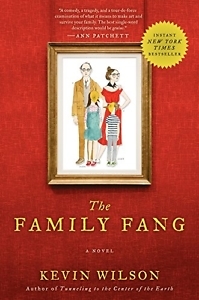 Over the years, I’ve met — either in person or virtually — so many wonderful people through Chapter 16. I have interviewed notable writers from one end of the alphabet to the other: from Clan of the Cave Bear author Jean Auel to Sewanee writer Kevin Wilson. I was there when Wilson’s deadpan reading at the Meacham Workshop of the Romeo and Juliet chapter from his 2012 novel The Family Fang left everyone in attendance gasping for breath from laughing so hard. I’ve had my photo taken with the gracious Ann Patchett and watched my sweet husband compete with Rick Bragg over who had the most colorful relatives (“For Allen, who gets it,” Bragg wrote as he autographed our book).
Over the years, I’ve met — either in person or virtually — so many wonderful people through Chapter 16. I have interviewed notable writers from one end of the alphabet to the other: from Clan of the Cave Bear author Jean Auel to Sewanee writer Kevin Wilson. I was there when Wilson’s deadpan reading at the Meacham Workshop of the Romeo and Juliet chapter from his 2012 novel The Family Fang left everyone in attendance gasping for breath from laughing so hard. I’ve had my photo taken with the gracious Ann Patchett and watched my sweet husband compete with Rick Bragg over who had the most colorful relatives (“For Allen, who gets it,” Bragg wrote as he autographed our book).
I’ve conquered my shyness and interviewed strangers at writers’ conferences and book fairs and been surprised at how much fun that can be. At the Tennessee Antiquarian Book Fair in Cowan in 2012, I started asking dealers how they got into the business of selling books and was treated to some fascinating tales. My favorite was the older gentleman who lost an oil-burning oven in a country auction when he was a boy but asked the winner if he could have the book inexplicably found inside the device. As the new owner could neither read nor write, she handed it over readily. The book turned out to be a rare Civil War history, and his family sold it for more than 150 times the price of the oven. Understandably, he was hooked after that experience. “Other vendors say I still demand the same rate of return on my investments,” he quipped.
But when I was unexpectedly given the honor at the 2014 SFB to introduce one of my very favorite people on the planet, fantasy writer Jasper Fforde, it was an absolutely terrifying dream come true. Another one of those “firsts” that Margaret had to talk me into. Not only did she keep me from spontaneously combusting from fear and excitement, she whipped out a needle and thread and mended my pants when the hem mysteriously disappeared only hours before the big event. (That’s the “kindest” part I mentioned earlier.) And Mr. Fforde was just as delightful and funny as any fan could hope for. It’s a day I will never forget, thanks to Chapter 16.
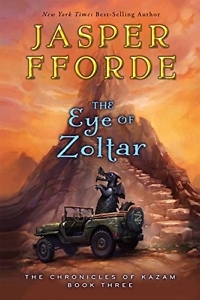 And then there are the books I’ve been able to read. I’m a generalist, so I’ve been asked to review across a number of genres over the years: modern fiction, fantasy, crime, inspirational, YA and children’s books, science, history, memoir, short stories, humor, even poetry. Reading award-winning and best-selling authors is always fun, but I think my favorites are those new to publication, some of whom even send me appreciative notes, thanking me so sincerely for my review of a book created out of their own heart and soul and the dream of their life — to be a published author. They are the ones Chapter 16 is in a position to help the most — the ones who truly can benefit from the attention a well-written and thoughtful review of their work may bring.
And then there are the books I’ve been able to read. I’m a generalist, so I’ve been asked to review across a number of genres over the years: modern fiction, fantasy, crime, inspirational, YA and children’s books, science, history, memoir, short stories, humor, even poetry. Reading award-winning and best-selling authors is always fun, but I think my favorites are those new to publication, some of whom even send me appreciative notes, thanking me so sincerely for my review of a book created out of their own heart and soul and the dream of their life — to be a published author. They are the ones Chapter 16 is in a position to help the most — the ones who truly can benefit from the attention a well-written and thoughtful review of their work may bring.
I know a little bit about how they feel because that first essay I accidentally wrote has led to a few more of my own. I’ll never write a novel or even a memoir, but from time to time I do manage an autobiographical essay. Their themes range from my love of books and the thrill of visiting the homes of favorite authors, to how I managed to live through some of the more stressful events of my 50s, to a personal favorite — my experience of walking a labyrinth for the first time and the spiritual boost it gave me.
As I begin my 60s, I’m mindful of the shortness of time — impossible to avoid, really, while living through a pandemic. And I realize that I’d like to leave behind a little record of my life: its devastating lows and astonishing highs and all the perfectly normal days in between, and how, with a great deal of help and prayer and love and luck, I was able to keep reading and keep writing and keep hoping and even learn something along the way. Thanks to its founding editor, Margaret Renkl; its current editor, Maria Browning (who absolutely deserves an essay all her own); and the wonderful folks at Humanities Tennessee, Chapter 16 has given me that opportunity.
***
Ten Books I’m Glad I Read for Chapter 16
Mycophilia by Eugenia Bone
Full Body Burden by Kristen Iverson
The Dog Stars by Peter Heller
We Are All Completely Beside Ourselves by Karen Joy Fowler
Midnight, Jesus & Me by J.M. Blaine
Paperboy by Vince Vawter
The Good Luck of Right Now by Matthew Quick
That Thing We Call a Heart by Sheba Karim
Refugee by Alan Gratz
The Speckled Beauty by Rick Bragg
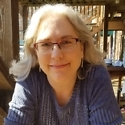
Copyright © 2022 by Tina Chambers. All rights reserved. Tina Chambers has worked as a technical editor at an engineering firm and as an editorial assistant at Peachtree Publishers, where she worked on books by Erskine Caldwell, Will Campbell, and Ferrol Sams, to name a few. She lives in Chattanooga.
